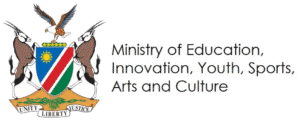Western science knowledge evolve from indigenous knowledge
Keywords:
contextualised curriculum, analogy, cultural artefacts and practices, indigenous knowledge, western science knowledgeAbstract
The incorporation of indigenous knowledge is a contemporary issue in science teaching practices, most useful, in particular in areas where teaching and learning resources are scarce. Indigenous knowledge in this study is proposed as knowledge in the essence of the identities and world views of Indigenous people manifest in their cultural practices. As a contemporary issue, sometimes science practitioners grapple with incorporating science principles in indigenous knowledge as prior knowledge in their practices that might culturally contextualise, authenticate or localise science teaching practices. The need to explore usefulness of prior knowledge found in cultural context paved way for this study in order to answer the research question: What are the enhancers and constraints of using indigenous knowledge to engage situated cognition to ensure that understanding of science concepts is achieved? To gain insight into the posed research question, this study sought to find out whether the situated cognition approach could be involved through incorporation of indigenous knowledge in under-resourced rural schools in the Zambezi Region, Namibia. Analogies, cultural practices and artefacts in indigenous communities reflecting science were analysed in order to gain insight into how such knowledge can be transformed in order to close the gap encountered when senior secondary science teachers grapple to incorporate the knowledge reflected. Sociocultural theory of learning was used as a theoretical framework and as a lens to look at the data that contextualise science teaching and learning. Additionally, qualitative data indigenous communities have were gathered through observations and brainstorming. Thereafter, analysis of cultural practices in the presence of an indigenous community member was done. Furthermore, four science teachers from the same community in Zambezi Region were interviewed at their schools and their reflections complemented the interview data. Document analysis of Namibian senior secondary science curriculum position on indigenous knowledge and western science knowledge lens were done. Thereafter, such triangulated data were analysed as informed by themes that emerged from common patterns. Some findings from the analysed data were; use of analogies found in indigenous communities can produce a measurable effect in concept learning. The second key finding was that learners’ prior knowledge with connotation of indigenous knowledge played a key role in facilitating learning when cultural artefacts and practices were embraced.
Downloads
Published
How to Cite
Issue
Section
License
Copyright (c) 2019 MoEAC, National Institute for Educational Development (NIED)

This work is licensed under a Creative Commons Attribution 4.0 International License.






